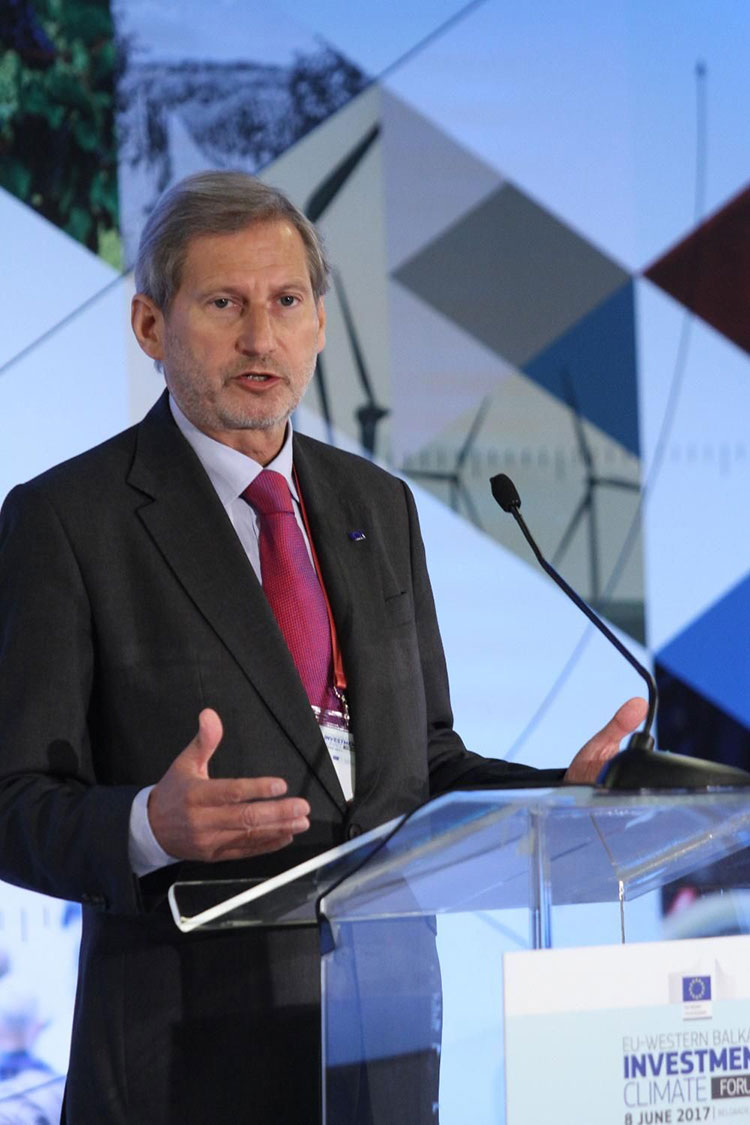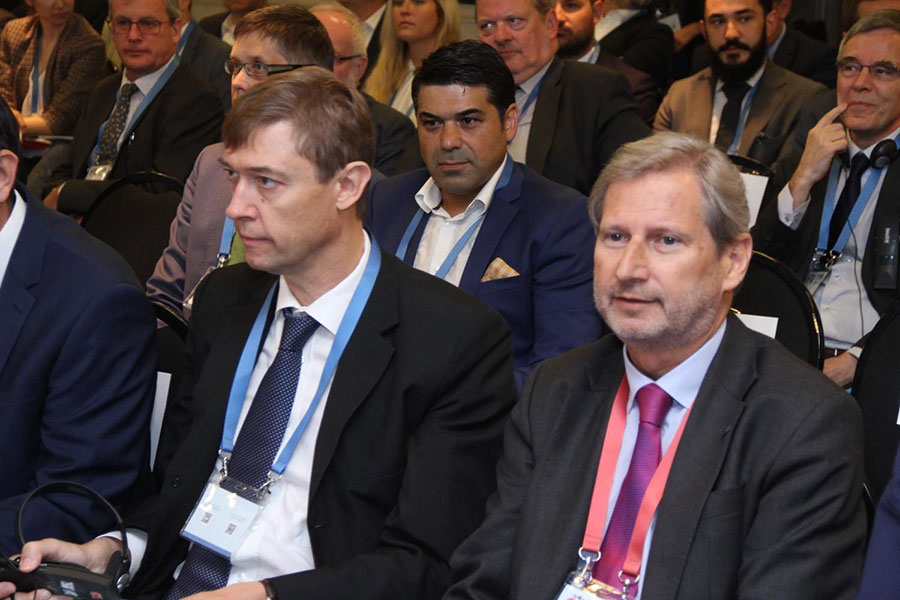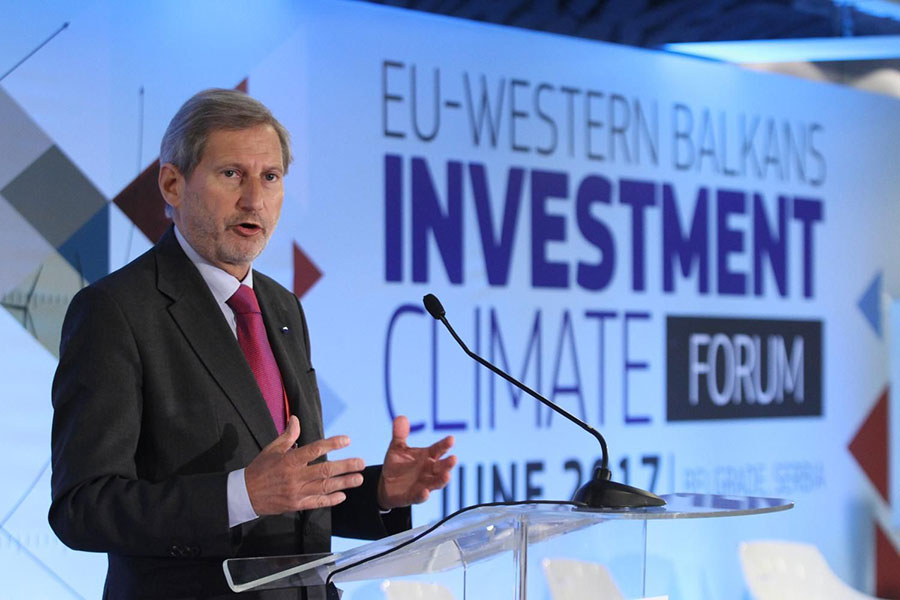We all share a common goal: to galvanise the Western Balkans’ growth by exploring investment opportunities in the region, said European Commissioner for Neighbourhood Policy and Enlargement Negotiations Johannes Hahn in his speech delivered during the conference EU-Western Balkans Investment Climate Forum, adding that the EU is committed to enlargement.
Hahn said that EU’s focus on the Western Balkans sent a clear political message that the EU was committed to enlargement process and wanted to continue close cooperation with the countries in the region in order to boost their development.
“The desire to be part of the European family is a shared one. And we walk that path together,” said Hahn during the conference organised by the DG NEAR of the European Commission.

FoNet
We have organised today’s Forum on the Investment Climate in the Western Balkans because all countries of the region need greater investment to become prosperous EU Member States.
“As a former business man, I am convinced that this is the best way to stimulate an economy and galvanise growth,” Hahn said and added that the region has already benefited from the process of European integration and would continue to benefit from it.
“Over the past ten years, trade between the Western Balkans and the EU has more than doubled, reaching EUR44 billion in 2016,” he said and added that exports from the Balkans have more than doubled from seven billion euros to 18.
He said that investors knew that trade between the EU and the Western Balkans was already very liberalised, and that the progressive harmonisation of rules and standards would create a level playing field for all investors.
Hahn said that foreign direct investment from the EU constituted roughly 50 per cent of the total stock in 2015 and were growing.
“For Serbia, that number is over 60 per cent of foreign direct investment,” said Hahn speaking about the investment coming from the EU in Serbia.
He, however, said that private investment was still lagging far behind in the Western Balkans.
The rule of law and economic development are two sides of the same coin, Hahn said and added it was thanks to the democratic values, fundamental rights and principles that the EU is based on that the EU recovered so swiftly from the financial crisis.
Across the Western Balkans, boosting the rule of law is probably one of the most powerful levers to improve the business environment, Hahn stressed and pointed to the issue of informal economy as a factor that reduced tax revenue and led to unfair competition in the market.
Hahn said that foreign investors would not come to the county if they knew that they might face informal economy and the lack of level playing field.

FoNet
He said that some 20 million people lived in the Western Balkans region and that the EU planned to endorse the concept of regional economic area as a new step in cooperation.
European Commissioner said that the bulk of laws should not be adopted by urgent procedure, adding that it is better to adopt laws through the usual procedure in order to hear opinions from the business community and other stakeholders.
Minister of Economy of Serbia Goran Knezevic believes that Serbia has implemented serious reforms that were starting to yield results.
Knezevic said that unemployment rate in Serbia has been reduced from 24 to 13 per cent in the past four years, that the minimum wage has risen, but added that salaries in Serbia remain lower than in the EU.
Minister of Economy of Albania Milva Ekonomi said she was happy with economic trends in her country, adding that Albania achieved growth rate of 3.5 per cent in 2016 and improved its business environment.
Read Commissioner Hahn’s integral speech here




